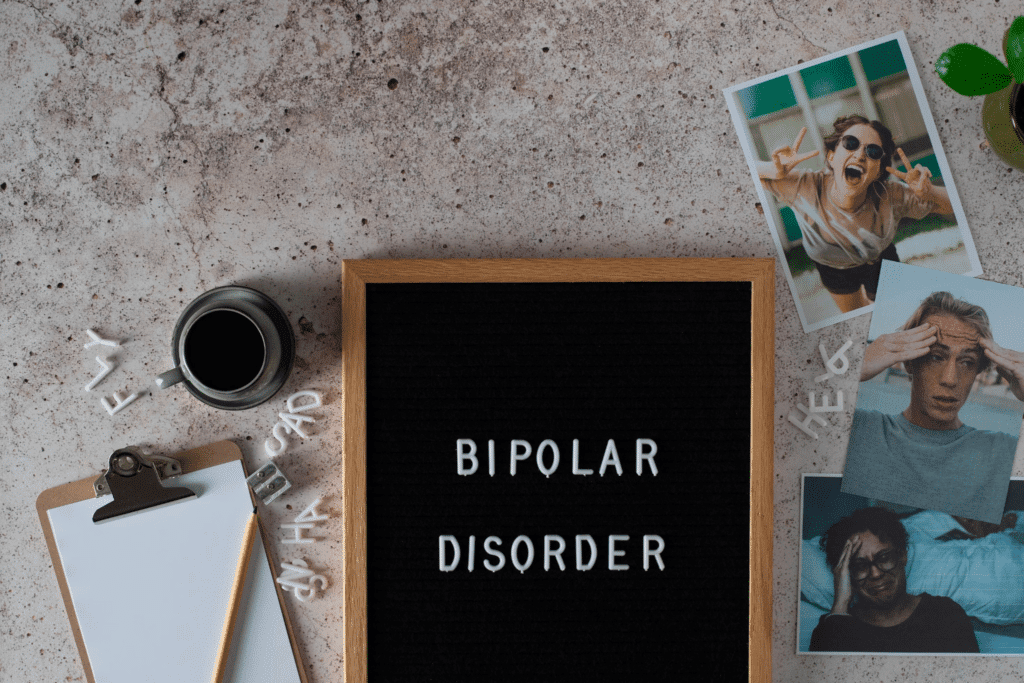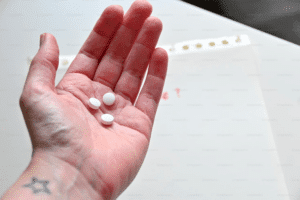Introduction
ECT Therapy for Bipolar Disorder is widely being used to treat bipolar disorder in patients worldwide. Statistics show that a whopping 2.8% of the total population in the United States suffers from bipolar disorder.
Bipolar Disorder was earlier called Manic Depressive Disorder or Manic Depression. This psychiatric disorder is a mental health condition in which the patient suffers from extreme mood swings. These mood swings are categorized by extreme highs (mania) or extreme lows (depression).
What is Bipolar Disorder?

Bipolar Disorder is a type of psychiatric disorder where the patient feels extreme depression (lows) or extreme highs.
During the depressive phase, the patient feels sad, and hopeless, or may lose the will to live. However, during extreme phases of highs, the patient may feel euphoric, energetic, and irritable.
These mood swings affect the individual’s sleep, energy levels, ability to make judgments, and even their ability to think properly. The suicide rate for patients suffering from Bipolar Disorder is 10% to 30% higher than the rest of the population.
These shifts in the moods of the patients may happen rarely or several times a year. Bipolar Disorder is a psychiatric condition that impacts an individual for a lifetime.
However, on the bright side, the symptoms of this psychiatric disorder can be treated with the help of medications, counseling, and therapy like ECT therapy for bipolar disorder, and the patient can be relieved from symptoms of bipolar disorder.
What are the symptoms of Bipolar Disorder?

Bipolar Disorder is categorized by several symptoms. These symptoms include extreme phases of hysteria or depression. These symptoms are more than just mood swings. The entire personality of the patient is altered and it changes the behavior pattern of the individual.
Bipolar Disorder is often dangerous as it impacts the individual’s ability to make sound decisions. The symptoms of Bipolar Disorder are discussed below:
- Increase in energy levels and activities of an individual
- Increased restlessness
- Feeling excessively euphoric without any reason (also known as the high phase)
- Racing thoughts, rapid speech, and inability to concentrate
- Irritation
- Needing less sleep than the average person
- Increased sex drive
- Delusion of one’s potential, powers, and abilities
- Aggressive behavior
- Denial of seeking help
People with Bipolar Disorder are also prone to using recreational drugs or being a part of self-harm. In most cases, bipolar disorder is treatable with the help of medicines, counseling, and ECT therapy for bipolar disorder.
What is the process for ECT therapy for Bipolar Disorder?
Electroconvulsive Therapy or ECT therapy for Bipolar Disorder is often recommended to treat patients with Bipolar Disorder and other illnesses that impact the mental health of an individual.
ECT therapy for Bipolar Disorder is strictly performed under the guidance of medical professionals. General anesthesia is first administered to the patient. Once the effects of anesthesia take place, the doctors pass electric currents through the patient’s brain. It is to be noted that the electric currents passed through the brain are in small doses and do not cause pain or discomfort to the patient.
These electric currents cause seizures in the patient. Seizures aid the patient’s recovery and are a normal reaction to the electric currents passed through the brain. As the sessions progress, the chemical composition in the patient’s brain is altered. Change in the brain chemistry reverses the symptoms of Bipolar Disorder in a patient.
How effective is ECT therapy for Bipolar Disorder?
ECT therapy for bipolar Disorder is effective in not only treating bipolar disorder but also psychiatric illnesses such as Depressive Disorder, Obsessive Compulsive Disorder, Catatonia, and Mania.
Different people may respond differently to ECT therapy for bipolar disorder due to varying factors like age, history of prior use of medications, and diagnosis of other illnesses.
There is research and evidence in which it was concluded that ECT therapy for bipolar disorder is extremely effective in treating the same. It was found that ECT therapy has a success rate of 80.2%. It was also concluded that people with advanced ages responded well to ECT therapy.
Another study proved that patients suffering from drug-resistant bipolar disorder showed a success rate of 68.8%. This study also concluded that individuals with shorter and milder forms of bipolar disorder showed a better response rate to ECT therapy for Bipolar Disorder.
How many sessions are needed for ECT therapy for Bipolar Disorder?
ECT therapy for bipolar disorder can only be performed under the care and guidance of a medical professional.
After general anesthesia has done its work, the doctors take small doses of electric currents through the patient’s brain. These electric currents trigger seizures in the brain. These seizures are not dangerous. As a result, the chemical composition in the brain of the patient gets reversed treating the psychiatric disorder and the symptoms of bipolar disorder.
Once the patient signs up for ECT therapy for Bipolar Disorder, they are advised to undergo 2 to 3 sessions of ECT therapy for OCD in a week. Each session lasts for 60 minutes. After 10 to 12 sessions, it can be observed that the patient is treated completely, and the symptoms of bipolar disorder have been alleviated.
Who is an ideal candidate for ECT therapy for Bipolar Disorder?

ECT therapy is beneficial for patients who are suffering from major psychiatric illnesses. A patient who is suffering from drug-resistant bipolar disorder, depressive disorder, catatonia, obsessive-compulsive disorder, etc. is an ideal candidate for ECT therapy.
ECT therapy is also given to patients who show no improvement after prescription drugs or to those for whom prescription drugs cannot be given, eg. pregnant women.
As per the medical guidelines, ECT therapy is recommended as the last resort. The medical team thoroughly asses the individual and evaluate their medical condition before giving them ECT therapy for any disorder.
What are the side effects of ECT Therapy for Bipolar Disorder?
ECT therapy for Bipolar Disorder is a safe treatment that is performed on patients suffering from bipolar disorder. However, like in any form of treatment, ECT therapy for bipolar disorder may also have some side effects like the following:
Inability to Understand and Confusion
After a session of ECT therapy for Bipolar Disorder, the patients might feel confused. They might have trouble comprehending where they are or which circumstances brought them there. However, this inability to understand the situation may only last for a few minutes to several hours.
Loss of Memory
In some cases, the patients may suffer from amnesia or memory loss after a session of ECT therapy. The memory loss may affect the memories a couple of days or weeks before the sessions. However, the patient starts regaining their memories after a couple of months the session is over.
Side Effects in the Body
Some patients might suffer from headaches, nausea, pain in the jaws, or muscle pains after getting ECT therapy. These side effects are managed with the help of medications.
Side Effects Due to Complications from Medication
ECT therapy is administered after giving general anesthesia to the patients. Sometimes patients may develop complications arising out of anesthesia as well.
Frequently Asked Questions
1. What is Bipolar Disorder?
Bipolar disorder is a psychiatric illness where the patient suffers from extreme mood swings. They might have extremely depressive phases where they might feel sad, hopeless, lethargic, or even suicidal. During the high phases, the patient might feel euphoric, reckless, and energetic.
2. At what age does Bipolar Disorder start?
The early symptoms of Bipolar Disorder can be traced back to the child aged 12 to 14 years.
3. Is bipolar disorder a genetic disease?
Yes, Bipolar Disorder is often inherited.
4. Does ECT Therapy for Bipolar Disorder work?
Yes, ECT therapy is extremely helpful in alleviating the symptoms of Bipolar Disorder.
5. How long do the side effects of ECT last?
The effects of ECT therapy may last for a few hours to several days. Every individual responds differently to ECT therapy and it is best to seek medical guidance before opting for this treatment.
Conclusion
Bipolar Disorder is a psychiatric disorder that affects many people worldwide. In this disorder, the patient suffers from an extreme shift in their mood, energy levels, and even their activity levels. It is an illness that hampers individuals from living their best life and performing to their true potential. However, the good news is that the symptoms of bipolar disorder can be cured with the help of counseling, medications, and ECT therapy for bipolar disorder.
Like any other treatment, ECT therapy has its own set of pros and cons. In some cases, the patient might suffer from side effects that might last for a short term or long term. The patient must discuss this with their doctor before opting for this treatment.
Several studies prove that ECT therapy is helpful to patients not only with Bipolar Disorder but also with other psychiatric disorders like Depressive Disorder, Obsessive Compulsive Disorder, Catatonia, Manic, etc.
Taking swift action is crucial when dealing with bipolar disorder and addiction issues. Enrolling in a specialized facility like Avisa Recovery can provide several benefits, including a better understanding of bipolar disorder, improved daily functioning, reduced risk of relapse, development of effective coping mechanisms, enhanced interpersonal communication, and a nurturing and secure environment.










